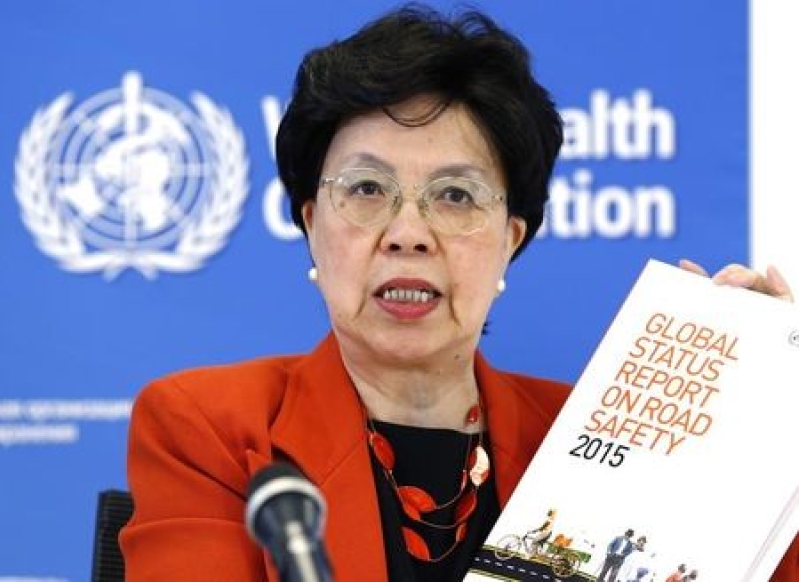
A U.N. panel is considering ways to hold governments to account for failing to stick to global health rules, World Health Organization Director-General Margaret Chan said on Tuesday.
"This goes back to governments. If they sign up to the international health regulations they need to honor their commitment. Because if they don't do their part they pose a risk to their neighbors and beyond," she told a news conference.
A global health crisis review set up by U.N. Secretary-General Ban Ki-moon is looking at how to make them accountable, according to Chan.
"As part of the Secretary-General's high level panel I'm sure they will come up with some kind of mechanism to address governments that ignore their duty and responsibility and yet pose a threat to others."
Weak health care systems have been blamed for thE recent West African Ebola epidemic, and Chan said poor standards in Saudi Arabia and South Korea had hastened the spread of the deadly Middle East Respiratory Syndrome.
The WHO stumbled in its response to Ebola, but Chan said funding cuts were partly responsible.
A report into what went wrong had come up with many of the same findings as a previous report into the 2011 H1N1 influenza pandemic, which showed the world was ill-prepared for a severe disease outbreak, Chan said. "And at that time member states rejected to fund the recommendations."
Countries must "walk the talk", she said, noting that health ministers in several states had signed up to the Framework Convention on Tobacco Control, a landmark anti-smoking treaty, only to have their trade ministers launch legal action to prevent other countries putting it into law.
"So the policy incoherence and the lack of understanding of governments to their obligation and duty to the convention is truly a big challenge to the world."
Governments needed to help people be healthy, Chan said.
"It's too easy to blame the individual."
They are also needed to curb the costs of medicines to stop treatments becoming unaffordable, and Chan suggested reform of drug pricing was on the table.
"Now I'm beginning to hear some discussion about delinking the cost of investment in innovation and the price of medicines and vaccines," Chan said, without elaborating.
(Reporting by Tom Miles; Editing by Mark Heinrich)







